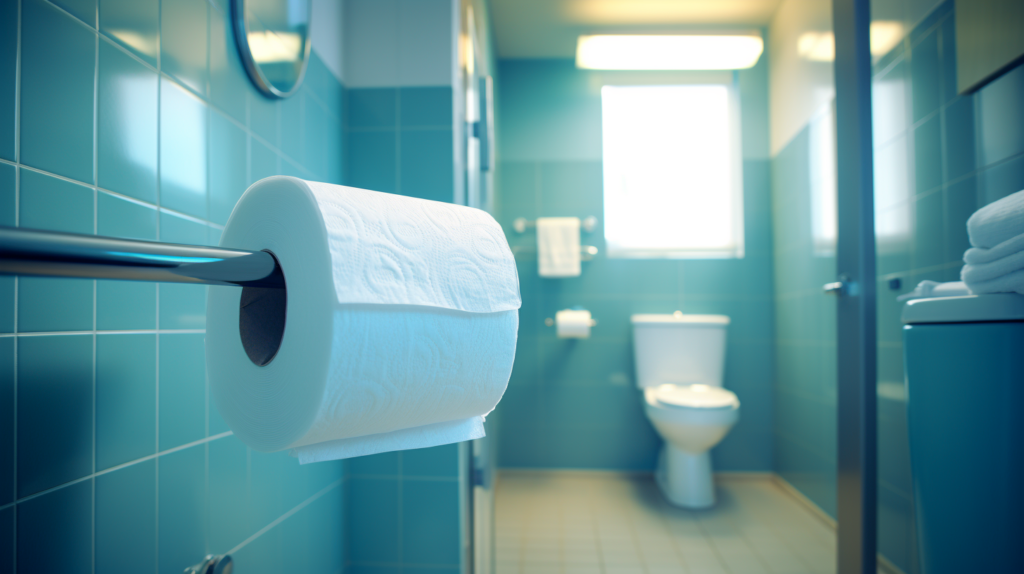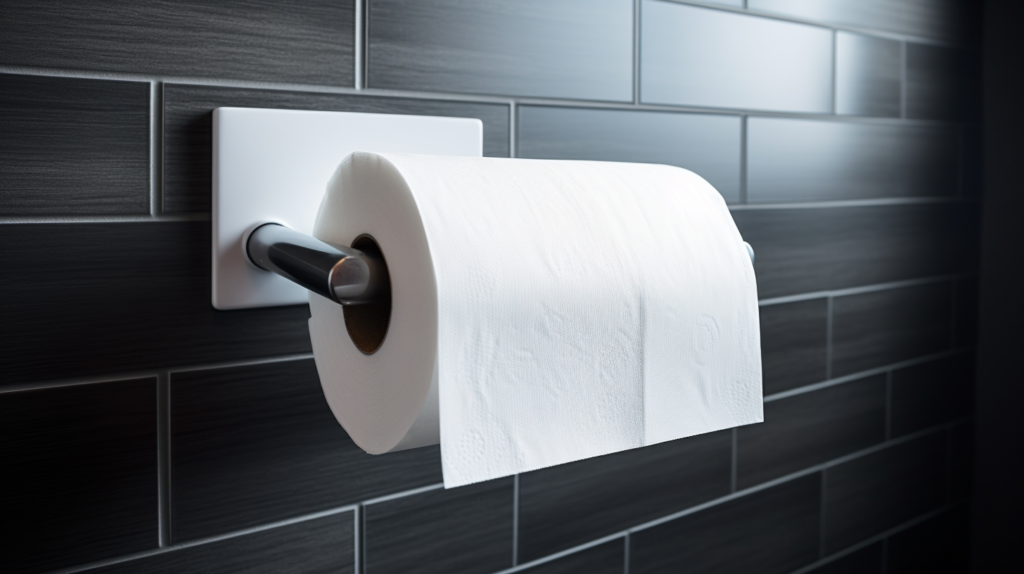If you’ve ever taken probiotics, you may have noticed an increase in your bowel movements. This is a common side effect of probiotics and is actually a sign that they’re working to improve your digestive health.
Probiotics are live bacteria and yeasts that are good for your health, especially your digestive system. They are often called “good” or “friendly” bacteria because they help keep your gut healthy. Probiotics work by restoring the natural balance of bacteria in your gut, which can be disrupted by poor diet, stress, or antibiotics.
But why do probiotics make you poop more? It’s because they can help regulate your bowel movements. Probiotics help to break down food and improve gut motility, which can lead to more regular bowel movements. Additionally, probiotics can help to soften stool and make it easier to pass.
Overall, probiotics offer a range of benefits for your digestive health, and an increase in bowel movements is just one sign that they’re doing their job. Keep reading to learn more about the link between probiotics and digestion, as well as tips for incorporating probiotics into your diet.
Puntos clave
- Probiotics are live bacteria and yeasts that are good for your digestive health.
- Probiotics help regulate bowel movements and improve gut motility.
- An increase in bowel movements is a common side effect of probiotics and a sign that they’re working to improve your digestive health.
Understanding Probiotics and Their Impact on Bowel Movements
If you’re looking to improve your digestive health, you may have heard about probiotics. These live bacteria and yeasts are found in certain foods and supplements and can have a positive impact on your gut health. But how exactly do they affect your bowel movements?
First, it’s important to understand that your digestive system is home to trillions of bacteria, both good and bad. Probiotics are a type of good bacteria that can help keep the bad bacteria in check and promote a healthy balance in your gut flora.
When you consume probiotics, they travel to your gut where they can help break down food, absorb nutrients, and support your immune system. They can also help regulate bowel movements by producing enzymes that aid in digestion and promoting the growth of other beneficial bacteria.
However, the effects of probiotics on bowel movements can vary depending on the individual and the type of probiotic being consumed. Some probiotics may cause gas, bloating, or an increase in bowel movements, while others may have no noticeable effect.
It’s also important to note that certain factors, such as diet and stress, can affect your gut health and the effectiveness of probiotics. That’s why it’s important to talk to your healthcare provider before starting any new supplement regimen.
Overall, probiotics can be a beneficial addition to your diet for improving gut health and promoting regular bowel movements. However, it’s important to choose the right probiotic for your individual needs and to consume them as part of a healthy and balanced diet.

The Link Between Probiotics and Digestion
When it comes to digestion, probiotics can play a crucial role in maintaining a healthy balance of bacteria in your gut. The gut microbiome, which is made up of trillions of microorganisms, including bacteria, fungi, and viruses, plays an essential role in regulating digestion, immune function, and overall health.
Probiotics are live bacteria and yeasts that can be consumed through food or supplements and can help promote the growth of beneficial gut bacteria. These beneficial bacteria can aid in the breakdown and absorption of nutrients, help to prevent harmful bacteria from growing, and stimulate immune function.
Studies have shown that probiotics can help alleviate digestive issues such as diarrhea, constipation, and irritable bowel syndrome (IBS). Probiotics can also improve overall gut health by reducing inflammation, improving gut motility and regularity, and enhancing the gut barrier function.
One study found that consuming probiotics for four weeks led to a significant increase in beneficial gut bacteria and a decrease in harmful bacteria in people with constipation. Another study showed that probiotics improved bowel regularity in people with IBS.
It’s important to note that the effects of probiotics on digestion can vary depending on the type and strain of bacteria, as well as individual factors such as diet, lifestyle, and genetics. It’s essential to speak with a healthcare professional before starting any new supplement regimen to ensure safety and efficacy.

Can Probiotics Cause Increased Bowel Movements?
It is not uncommon to experience increased bowel movements when starting to take probiotics. This is because probiotics can introduce healthy bacteria into your gut, which can help to stimulate digestion and increase bowel movements. However, the increase in bowel movements should only be temporary and should subside within a few days. If you continue to experience increased bowel movements after a few days, you should consult with your doctor as it may be a sign of an underlying condition.
It is worth noting that not all probiotics will cause increased bowel movements. Some strains of probiotics are specifically formulated to help regulate bowel movements and promote bowel regularity. However, it is important to choose the right type of probiotic for your individual needs and to always follow the recommended dosage instructions.
Fuente de la imagen: 
Probiotics and Gut Health
One of the main reasons people take probiotics is to improve their overall gut health. The gut, also known as the digestive tract, houses trillions of bacteria that play a crucial role in maintaining your overall health. These bacteria help break down the food you eat, absorb nutrients, and keep harmful pathogens at bay.
Probiotics are live bacteria and yeast that can supplement the natural bacteria found in your gut. By taking probiotics, you can help maintain a healthy balance of good bacteria in your gut, which can improve your overall gut health.

Studies have shown that probiotics can help alleviate a variety of digestive issues, such as irritable bowel syndrome, diarrhea, constipation, and even inflammatory bowel disease. Additionally, probiotics can help boost your immune system and improve nutrient absorption, which can lead to improved overall health.
It’s important to note that not all probiotics are created equal, and different strains of bacteria can have different effects on your gut health. When choosing a probiotic supplement, it’s important to look for strains that have been clinically studied and shown to have a positive impact on digestive health.
Overall, incorporating probiotics into your diet can be a simple and effective way to improve your gut health and alleviate digestive issues. Consult with your healthcare provider to determine the best probiotic supplement for your needs.
Probiotics and Bowel Regularity
If you struggle with irregular bowel movements, you’re not alone. Many people suffer from constipation or diarrhea, which can be uncomfortable and even painful. The good news is that probiotics may be able to help regulate your bowel movements and improve your digestive health.
Probiotics work by introducing beneficial bacteria into your gut, which can help to balance your gut microbiome and improve overall gut health. This can help to regulate bowel movements and prevent constipation or diarrhea.
In fact, some studies have found that taking probiotics can significantly improve bowel regularity. One study found that participants who took a probiotic supplement experienced an increase in bowel movements and a decrease in constipation compared to those who took a placebo.
Another study found that probiotics were effective in treating diarrhea caused by antibiotic use, which can disrupt the balance of bacteria in the gut and lead to loose stools.
While more research is needed, these studies suggest that probiotics may be a safe and effective way to improve bowel regularity and digestive health.
Best Probiotic Strains for Bowel Regularity
Not all probiotics are created equal when it comes to improving bowel regularity. Some strains may be more effective than others.
One of the most well-studied and effective strains for improving bowel regularity is Bifidobacterium lactis. This strain has been shown to improve bowel movements and reduce constipation in numerous studies.
Another strain that may be effective for improving bowel regularity is Lactobacillus acidophilus. This strain has been shown to improve bowel movements and reduce diarrhea in some studies.
But keep in mind that everyone’s gut microbiome is unique, and what works for one person may not work for another. It’s important to experiment with different probiotic strains and dosages to find the one that works best for you.

Probiotics and Gut Motility
If you’re experiencing constipation or irregular bowel movements, probiotics can be a great aid in helping to regulate your gut motility. Gut motility refers to the contraction and relaxation of the muscles in your digestive tract that help move food and waste through your system. When your gut motility is functioning properly, you’ll have regular bowel movements that are easy to pass.
Research shows that probiotics can help improve gut motility by increasing the number of beneficial bacteria in your gut. The good bacteria in probiotics can help break down food and promote healthy digestion, which in turn can help regulate your bowel movements.
One study found that a daily dose of a specific strain of probiotic bacteria, Bifidobacterium lactis, helped improve gut motility and reduce constipation in participants. Another study showed that a combination of lactobacillus and bifidobacteria probiotics helped improve overall digestive function and reduce symptoms of gut discomfort.
It’s important to note that everyone’s gut microbiome is unique, so the type of probiotics that work best for you may differ from someone else. If you’re experiencing gut motility issues, it’s best to consult with your healthcare provider to determine the best probiotic supplement for your individual needs.

Probiotics and Poop Consistency
One of the many ways that probiotics can impact your digestive health is by affecting the consistency of your poop. If you’ve noticed changes in the texture or thickness of your stool after taking probiotics, you’re not alone.
The good news is that, in most cases, probiotics can help regulate poop consistency and prevent bowel irregularity. They do this by introducing helpful bacteria into your gut, which can improve overall digestion and absorption of nutrients.
| Consistency | Descripción |
|---|---|
| Hard, lumpy | Signifies constipation and insufficient hydration |
| Soft, but formed | Healthy bowel movement, indicative of good digestion |
| Soft, loose, and water | Sign of diarrhea and can indicate a potential imbalance in gut bacteria |
If you notice any significant changes to the consistency of your poop, it’s important to consult with your healthcare provider, as it could be a sign of a more serious underlying condition.
Probiotic supplements can help improve poop consistency by introducing beneficial bacteria into your GI tract. However, it’s important to find the right type of probiotic for your specific needs and to consult with your healthcare provider before starting any new supplement regimen.

Probiotics and Digestive Health
When it comes to digestive health, probiotics play a vital role in maintaining the balance of good bacteria in your gut.
Studies have shown that probiotics can help alleviate a number of digestive issues, including diarrhea, constipation, and irritable bowel syndrome (IBS). They can also help improve nutrient absorption and reduce inflammation in the gut.
One way probiotics aid in digestion is by breaking down food into smaller compounds that are easier to absorb. They also help prevent harmful bacteria from taking over in the gut.
Probiotics can also help regulate bowel movements. They increase gut motility, which helps move food through the digestive system more efficiently. This can help alleviate constipation and promote regular bowel movements.
It’s important to note that not all strains of probiotics are created equal when it comes to digestive health. Some strains are more effective in reducing certain digestive issues than others.
Consult with a healthcare professional to determine which strains of probiotics may be best for your specific digestive concerns. It’s also important to choose a high-quality probiotic supplement that contains live and active cultures.
Keep in mind that taking too many probiotics can cause unwanted side effects, such as bloating and gas. Start with a low dose and increase gradually as tolerated.
Incorporating probiotic-rich foods into your diet is another way to support digestive health. Fermented foods like yogurt, kefir, sauerkraut, and kimchi are all great sources of probiotics.
Overall, probiotics can be a valuable addition to your digestive health regimen. By improving gut motility, reducing inflammation, and promoting good bacteria, probiotics can help alleviate a number of digestive issues and improve overall gut health.

Factors to Consider When Taking Probiotics
Before you start taking probiotics, it’s important to consider a few factors to ensure you get the most benefit from them.
1. Strain
Not all probiotic strains are created equal. Different strains have different benefits, so it’s important to choose one that targets your specific digestive issues. For example, if you’re looking to improve constipation, consider a strain that has been shown to improve gut motility.
2. Dosage
Probiotic supplements come in different dosages, and it’s important to take the right amount to get the desired effect. Too little may not be effective, while too much can cause side effects like bloating and gas. Follow the recommended dosage on the label or consult with a healthcare provider to determine the appropriate dose for you.
3. Timing
When you take probiotics can also have an impact on their effectiveness. Some strains may be more effective when taken on an empty stomach, while others may be better absorbed with food. Check the instructions on the supplement or consult with a healthcare provider to determine the best time to take your probiotics.
4. Storage
Probiotics are live microorganisms, which means they require proper storage to maintain their potency. Store them in a cool, dry place away from direct sunlight, and avoid exposing them to high temperatures or moisture.
5. Combination with other medications
If you’re taking any other medications, it’s important to consult with a healthcare provider before taking probiotics. Some strains may interact with certain medications, and it’s important to ensure that the combination is safe and effective.

Best Types of Probiotics for Improving Bowel Movements
If you’re looking to improve your bowel movements with the help of probiotics, there are a few different strains that have been shown to be particularly beneficial.
Bifidobacterium lactis: This strain has been found to promote bowel regularity and improve stool consistency in individuals with constipation.
Lactobacillus acidophilus: Known for its ability to maintain a healthy balance of bacteria in the gut, this strain has also been shown to improve bowel movements in individuals with irritable bowel syndrome (IBS).
Bifidobacterium bifidum: This strain has been found to improve gut health and increase the frequency of bowel movements in individuals with chronic constipation.
Streptococcus thermophilus: In addition to supporting immune function, this strain has also been shown to improve bowel movements in individuals with IBS.
It’s important to note that everyone’s gut microbiome is different, and what works for one person may not work for another. If you’re considering taking probiotics to improve your bowel movements, it’s best to consult with a healthcare professional to determine which strains may be most beneficial for you.

Tips for Incorporating Probiotics into Your Diet
If you’re considering adding probiotics to your diet, here are some tips to help you do it effectively:
- Choose the right probiotic: Not all probiotics are created equal. Look for supplements that contain strains of bacteria that have been clinically studied for their digestive health benefits. Consult with a healthcare professional to find the right probiotic for your needs.
- Try fermented foods: Certain fermented foods can be a natural source of probiotics. Consider adding foods like yogurt, kefir, kimchi, and sauerkraut to your diet.
- Start slowly: It’s important to introduce probiotics to your system gradually. Start with a low dose and work your way up to the recommended dosage over time to avoid any discomfort.
- Take with food: Probiotics are most effective when taken with a meal. This helps to protect the bacteria as it passes through the stomach and into the intestines.
- Store properly: Probiotics are live bacteria and need to be stored properly to maintain their potency. Keep them refrigerated and away from heat and moisture.
- Be consistent: It’s important to take probiotics regularly to see the benefits. Choose a time of day that works best for you and stick to a consistent schedule.

By following these tips, you can effectively incorporate probiotics into your diet and improve your digestive health.
Conclusión
Probiotics can have a significant impact on your digestive health, including bowel movements. They can help regulate your gut motility, improve bowel regularity, and even help with poop consistency. However, it’s important to note that not all probiotics are created equal, and you should choose those that are best suited to your individual needs.
Before incorporating probiotics into your diet, consult with your healthcare provider, especially if you have any underlying health conditions or are on medication. Additionally, consider factors such as the strains, dosage, and form of probiotics you are taking to ensure maximum effectiveness.
It’s also important to note that while probiotics can help with bowel movements, they are not a substitute for a healthy diet and lifestyle. Eating a balanced diet, staying hydrated, and getting regular exercise are all important factors in maintaining optimal digestive health.
Incorporating probiotics into your diet can be done through a variety of ways, such as through fermented foods like yogurt, kefir, and sauerkraut, or through supplements. With the right approach and knowledge, probiotics can be a valuable tool in promoting a healthy gut and improving your overall digestive health.
PREGUNTAS FRECUENTES
Q: Why do probiotics make you poop?
A: Probiotics can help improve digestion and regulate bowel movements by promoting the growth of beneficial bacteria in the gut, which can aid in breaking down food and maintaining a healthy gut environment.
Q: What is the impact of probiotics on bowel movements?
A: Probiotics can have a positive impact on bowel movements by increasing gut motility and promoting regularity.
Q: Can probiotics cause increased bowel movements?
A: Yes, in some cases, probiotics can stimulate bowel movements and lead to increased frequency. This is often a sign that the probiotics are working to improve digestion.
Q: How do probiotics affect gut health?
A: Probiotics can help restore and maintain a healthy balance of bacteria in the gut, which is essential for optimal gut health and digestion.
Q: Do probiotics contribute to bowel regularity?
A: Yes, probiotics can contribute to bowel regularity by promoting the growth of beneficial bacteria in the gut, improving digestion, and regulating bowel movements.
Q: What is the link between probiotics and gut motility?
A: Probiotics can enhance gut motility, which refers to the movement of food through the digestive system. This can help prevent constipation and promote regular bowel movements.
Q: How do probiotics affect poop consistency?
A: Probiotics can help improve poop consistency by promoting a healthy balance of bacteria in the gut and enhancing digestion.
Q: What role do probiotics play in digestive health?
A: Probiotics play a crucial role in digestive health by supporting a healthy gut microbiome, improving digestion, and maintaining optimal gut functioning.
Q: What factors should you consider when taking probiotics?
A: When taking probiotics, it is important to consider factors such as strain specificity, dosage, and any specific health conditions or concerns you may have. Consult with a healthcare professional for personalized advice.
Q: What are the best types of probiotics for improving bowel movements?
A: The best types of probiotics for improving bowel movements may vary depending on individual needs and preferences. Some commonly recommended strains include Bifidobacterium lactis, Lactobacillus acidophilus, and Saccharomyces boulardii.
Q: What are some tips for incorporating probiotics into your diet?
A: You can incorporate probiotics into your diet by consuming foods like yogurt, sauerkraut, kefir, and kimchi. Alternatively, you can also take probiotic supplements as recommended by a healthcare professional.














